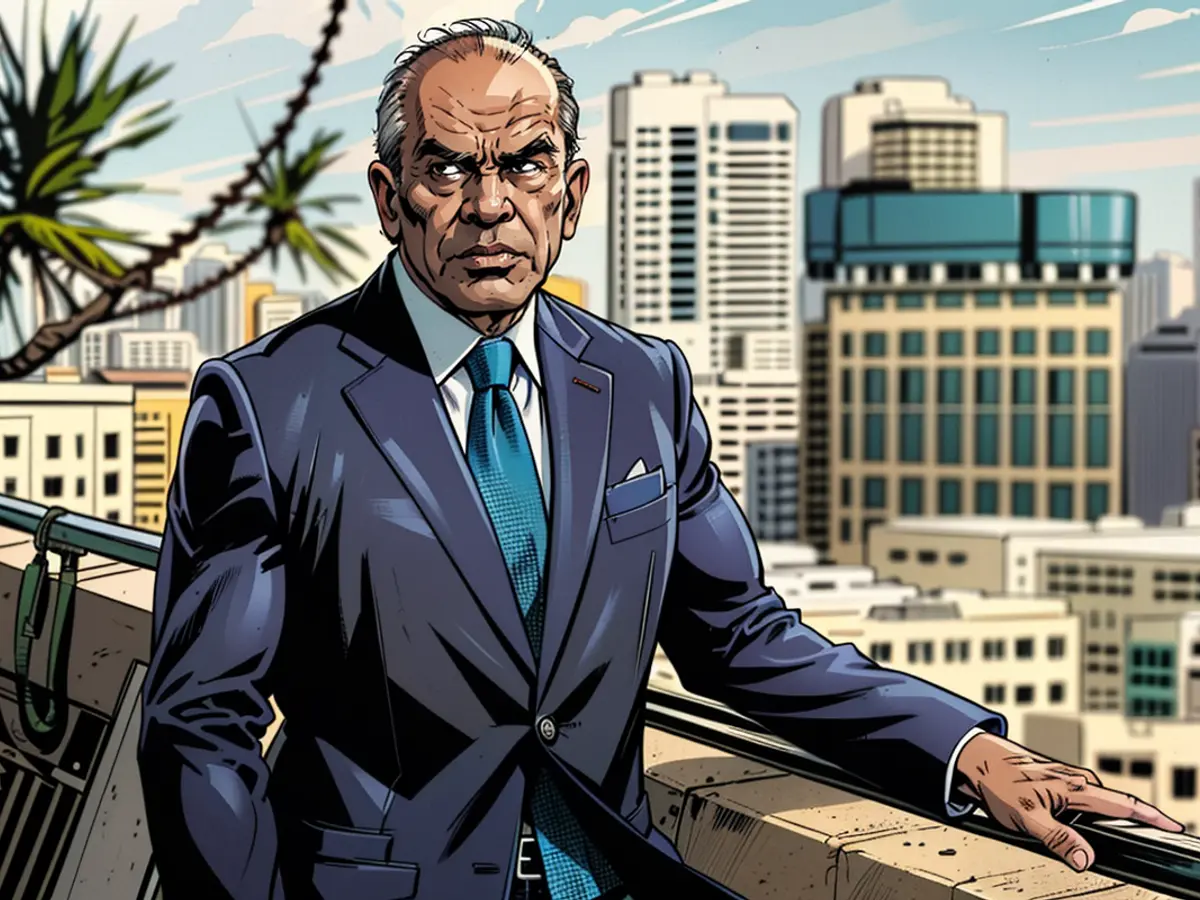Unveiled: The Inside Scoop on the Penitentiary Enforcing Capital Punishment for Marijuana Distribution
The 41-year-old ex-educator, who spent over seven years behind bars and received seven strokes of the cane for dealing meth, casually mentions, "It's more comfortable that way."
CNN encountered Matthew, who requested anonymity, during an exclusive tour of Changi Prison, provided by Singaporean authorities, as they defended the country's unwavering stance on drug issues.
In recent years, numerous US states and countries, such as Canada and Portugal, have decriminalized marijuana.
Matthew is serving a seven-year sentence in Changi Prison's Singapore for drug trafficking. However, Singapore enforces a mandatory death sentence for drug-related crimes involving specific quantities of prohibited substances – 15 grams of heroin, 30 grams of cocaine, 250 grams of methamphetamine, and 500 grams of cannabis.
A 64-year-old individual was executed for drug-related crimes this week, making it the fourth such execution this year.
Singapore's strict sentencing positions it among an exclusive group of countries, alongside Iran, North Korea, and Saudi Arabia, that enforce the death penalty for drug-related offenses.
K Shanmugam, Singapore's Minister for Home Affairs and Law, views the country's drug war as an "existential battle," and warns that any softening of the government's hardline stance could result in chaos.
"Look around the world," Shanmugam states. "Whenever there has been a certain leniency in the approach to drugs, homicides rise. Killings, torture, kidnappings...that increases."
A flourishing illegal drug market
Passengers on international flights entering Singapore receive a stark warning about the island's no-tolerance policy on drugs over the public address system.
"Drug trafficking is punishable by death," a woman's voice announces, as flight attendants advise passengers to secure seat belts and stow away carry-on items.
Citizens of this Southeast Asian city-state are also aware that it is illegal for them to consume drugs abroad. Returning Singaporeans and permanent residents face possible drug tests upon arrival.
Per capita, Singapore is one of the world's wealthiest nations, with a population of nearly 6 million people and an annual GDP per capita of nearly $134,000. This bustling regional transportation and financial hub is known for its safety, efficiency, and stringent regulations under de facto single-party rule.
The People's Action Party, of which Shanmugam is a member, has governed Singapore since its independence almost six decades ago.
Considering Singapore's strategic location, Shanmugam argues that it is a potentially profitable market in a drug-riddled area of Asia.
"If you can traffic drugs into Singapore, the street price here is significantly lower than in other parts of the world," Shanmugam explains. "It's an attractive proposition."

Singapore is geographically close to the notorious Golden Triangle, a drug-producing region consisting of Thailand, Laos, and Myanmar's civil war-torn regions. Last year, the United Nations Office on Drugs and Crime (UNODC) labeled the Golden Triangle as the world's largest opium source. Production of methamphetamine within the region has also significantly increased in recent years, outpacing heroin and opium.
Singapore's anti-drug officials argue that strict sentencing acts as a deterrent against drug trafficking.
"Our approach to prisons differs from that of countries like Scandinavia," Shanmugam says. "We opt for harsh punishment."
Shanmugam further explains, "It's not a retreat center. It's intended to be challenging."
Singapore's Changi Prison houses around 10,000 inmates. ### Small cells in suffocating heat
Singapore's Changi Prison Complex, located near the country's main airport, is a large compound with guard towers and reinforced gates.
More than 10,000 prisoners are housed within these walls, and according to the prison's latest annual report, the majority of them are serving time for drug offenses.
During our visit, CNN was granted access to a maximum-security floor that holds around 160 prisoners convicted of various felonies, from drug trafficking to violent crimes such as manslaughter.
Security cameras monitor the floor's interior and exterior, as well as the prisoners' toilets, allowing a handful of guards to keep watch over the entire area.
At mealtime, the sound of metal gates locking echoes through the cell block as a prisoner hands out meal trays via a ground-level hatch beneath each cell door.
CNN was permitted to interview only one inmate, Matthew, the former teacher, who confessed to being addicted to the same drug he sold.
His cells provide little more than 7 square meters of space (75 square feet) with a minimalist bathroom below a shower. Prisoners are not allowed to have furniture, so there's no bed or seating.
Year-round, Singapore's tropical climate brings temperatures over 30 degrees Celsius (86 Fahrenheit), making the cell's extreme heat a growing concern around the world due to climate change.
"You'll see that there are no fans or air conditioning," Matthew notes. "There are periods of time when it becomes unbearable."
With regards to the death penalty's potential impact on his drug trafficking activities, Matthew admits, "I would like to say yes."
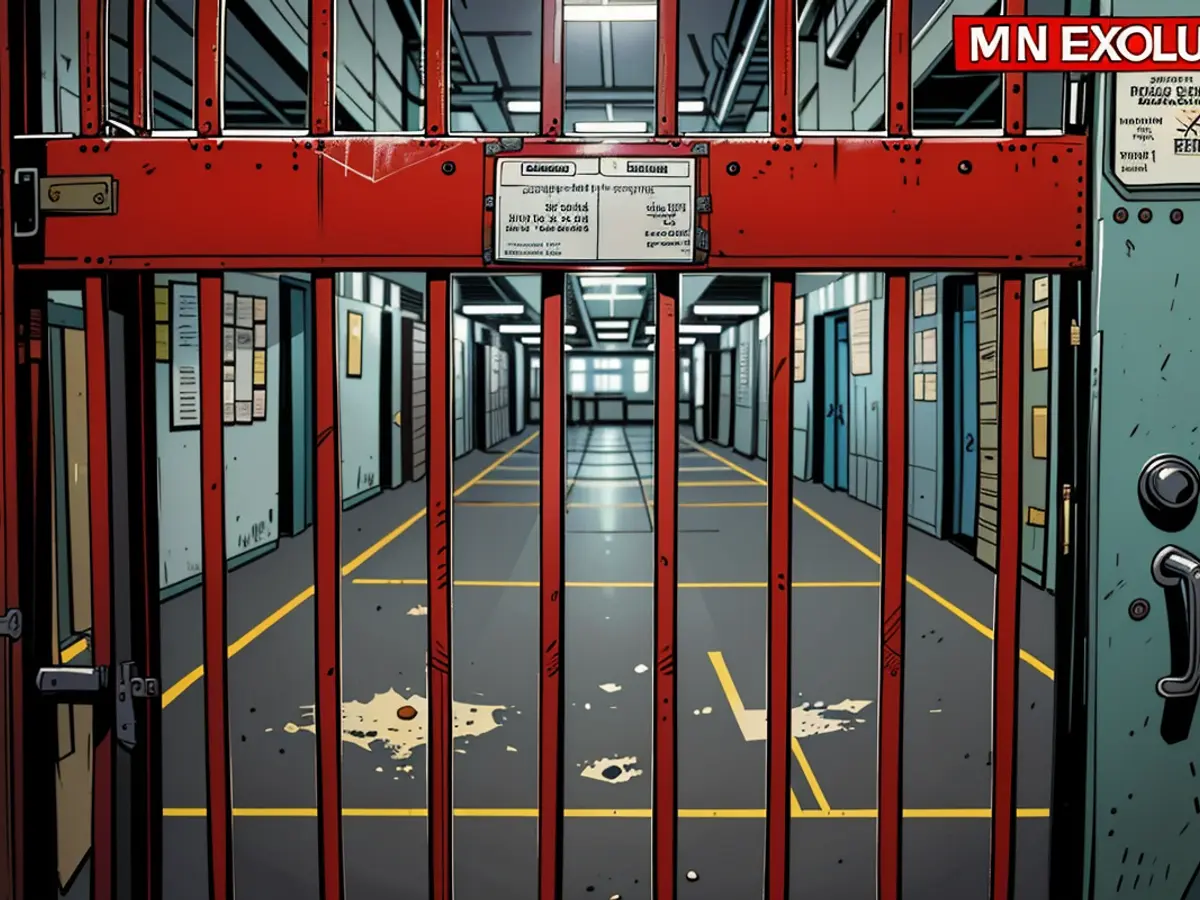
"However, the truth is that at the time, I wasn't thinking about it," he reveals. "In fact, I was avoiding the issue of consequences altogether."
"Governors of their lives"
The prison's austere conditions starkly contrast with the emotional well-being advice prominently displayed in the prison's communal areas.
The rehabilitation center, where inmates assemble anti-dandruff shampoo and instant coffee for minimal wages, is adorned with inspirational phrases from renowned figures like Steve Jobs and Nelson Mandela.
Colorful cartoons and waterfall photos adorn the classrooms where prisoners learn stress management and vocational training.
Employees from the Singapore Prison Service advocate for guards to perceive themselves as "Life Navigators," aiding in the reintegration of the prison population.
From a climate-controlled room labeled "aquarium," they watch inmates via live feeds from numerous surveillance cameras throughout the detention facility.
Reuben Leong, head of the correctional institution, acknowledges the risks involved. Physical altercations – typically clashes between inmates – occur roughly every few weeks, he mentions.
"There will be periods when they can be demanding, gruff, or hostile," he adds.
The Yellow Ribbon Project is a government initiative focused on reintegrating ex-convicts, providing employment opportunities and community engagement.
Despite these endeavors, Singaporean officials estimate that approximately one in five rehabilitated prisoners could revive their criminal lives within two years. In contrast, about one in three will return to prison within two years in the United States, recognized for some of the highest recidivism rates globally.
Presently, there is no rehabilitation program for detainees on death row.
In 2022, Singapore executed 11 individuals by hanging, and five the year prior, as per the most recent statistics. All were found guilty of drug-related offenses.
Authorities denied CNN entrance to Institution A1, housing over 40 individuals on death row.
‘Provide my son a second opportunity’
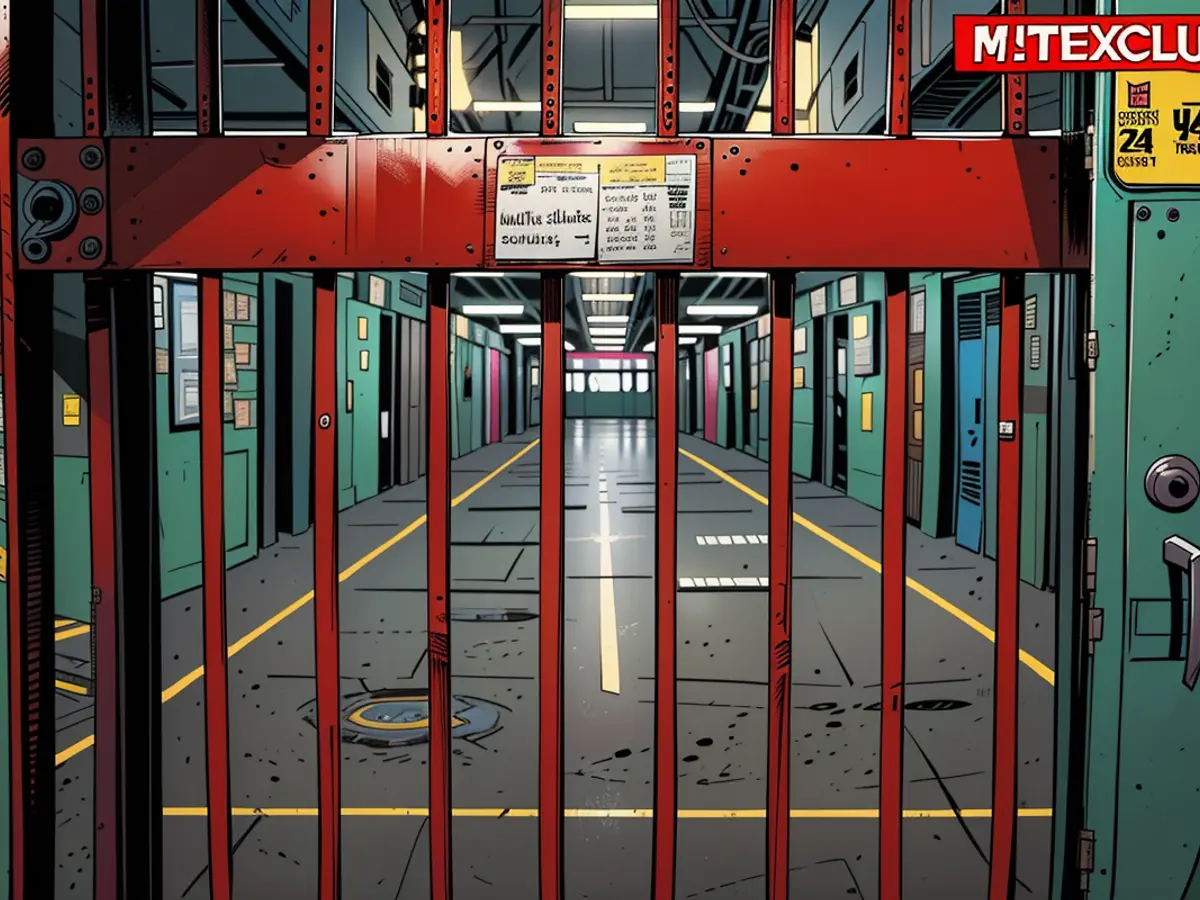
Outside the prison gates, families of death row inmates endure a painful wait for their loved ones' fate.
Halinda binte Ismail, boasting a strikingly blonde mane and a piercing in her left nostril, attests to at least seven imprisonments for drug-related charges. At the tender age of 12, Halinda began her descendent into drug addiction.
Halinda, a seasoned drug offender in Singapore, was incarcerated multiple times for drug-related crimes. Her last arrest emerged in 2017, following a police raid in the dwelling she shared with her eldest son, Muhammed Izwan bin Borhan.
Both Halinda and her son were judged guilty of drug trafficking. However, while Halinda served five years in prison, her son was sentenced to capital punishment after being caught with six packets of methamphetamine and heroin, as per court records. He remains imprisoned, awaiting execution.
“I grow furious over why the government withholds a chance for my son to modify his life,” Halinda expresses her frustration.
“I constantly pray to the government ‘grant my son a second chance.’”
Halinda has joined a small group of activists advocating for the abolition of Singapore's death penalty.
“It accomplishes nothing, and it is disproportionately employed against the most vulnerable and marginalized individuals in society,” articulates Kirsten Han, a journalist and activist with the Transformative Justice Collective, campaigning for death row inmates' rights.
“I simply believe it is morally wrong.”
Han's vocal critique of Singapore's capital punishment system has drawn the ire of Shanmugam, the Home Affairs minister.
“She is one of those who romanticizes the individuals on death row,” Shanmugam chides CNN.
However, Shanmugam corroborates one of Han's claims.
Among the 40 individuals currenly on death row, the majority hail from impoverished backgrounds.
One of the 11 individuals executed for drug offenses in 2022 was Nazeri bin Lajim.
“I was hoping that they would grant him a life sentence, but they literally hanged my brother,” laments his surviving sister Nazira.
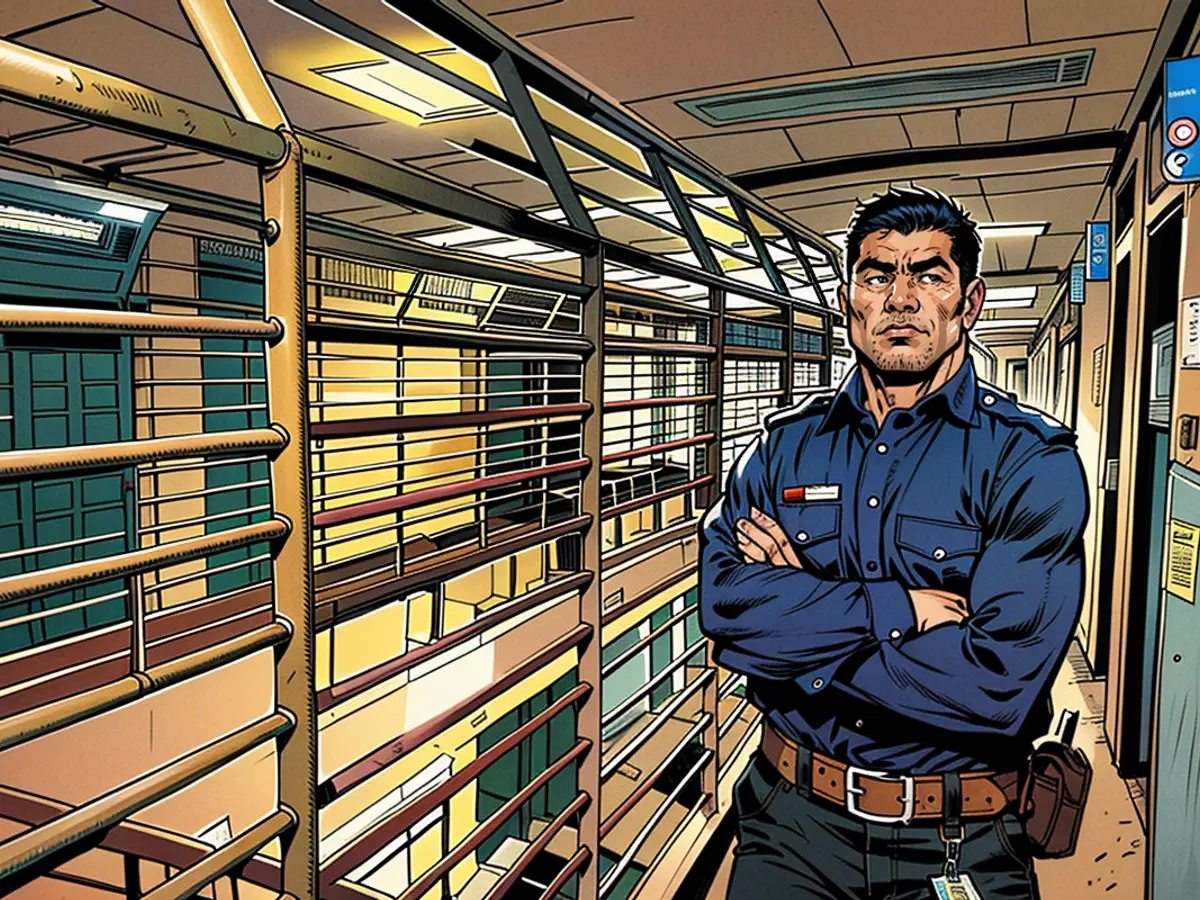
Nazira recounts her brother as a drug addict, but not a violent individual.
She displays a series of images on her phone depicting Nazeri, clad in vibrantly colored T-shirts, grinning and presenting a victory sign for the camera.
In preparation for executions, authorities arrange a professional photoshoot, allowing inmates to swap their prison garb for civilians' attire.
Nazira finds fault with the gesture.
“It’s feigned happiness,” she states.
She expresses her intent to convince her adult children to emigrate permanently to Australia.
Drug war
Singaporean officials argue that surveys demonstrate massive public support for the government's drug war.
Shanmugam frequently references visible drug use in European and American metropolises to justify Singapore's approach.
However, it may be more accurate to compare Singapore's results with Hong Kong, another former British colony with a zero-tolerance policy toward drugs.
Hong Kong's populace equals approximately 25% more than Singapore's, and it does not implement the death penalty for drug violations.
Despite its larger population, Hong Kong recorded 3,406 drug-related arrests in 2023 – merely a few hundred more than Singapore's 3,101 arrestees.
According to Shanmugam, drug-related arrests in Singapore increased by 10% in 2023 – suggesting that the death penalty threat might be failing to deter illegal activity.
“It’s an ongoing battle you never declare winning,” Shanmugam contends.
“It’s an ongoing project.”
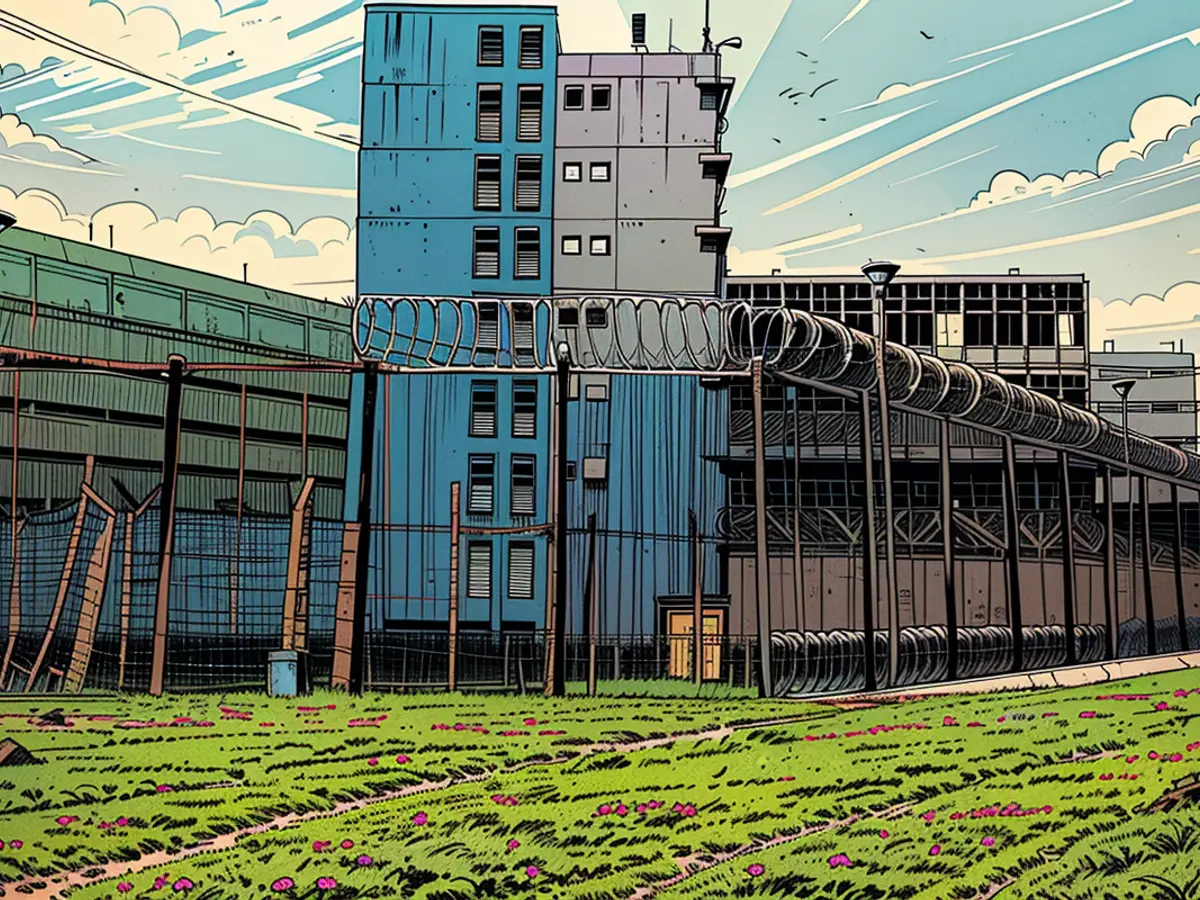
In the context of Singapore's strict stance on drug-related crimes, Matthew, a prison inmate serving a seven-year sentence, comments, "I wish the death penalty had been a deterrent for me when I was trafficking drugs."
Furthermore, addressing the global impact of leniency towards drugs, K Shanmugam, Singapore's Minister for Home Affairs and Law, states, "Looking at Asia, specifically, drug-related homicides, killings, and torture tend to increase whenever leniency is shown in drug policies."
